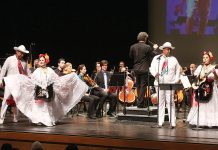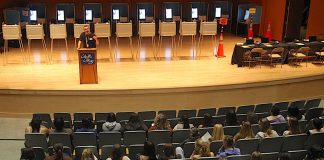SACRAMENTO — As the winter holiday season continues, the California Highway Patrol (CHP) is asking motorists to not drive impaired or distracted.
The CHP will observe the New Year with a Maximum Enforcement Period (MEP) from 6:01 p.m. today to 11:59 p.m. on Tuesday. All available personnel will be on duty.
The CHP will focus on impaired drivers, but officers will also watch for distracted driving, speeding, and seat belt violations, as well as motorists in need of assistance.
During last year’s New Year’s MEP, 40 people died in collisions on California roadways, according to the CHP, and more than two-thirds of the vehicle occupants killed within CHP jurisdiction were not wearing a seatbelt. In addition, CHP officers made 936 arrests for driving under the influence during the New Year’s MEP, which was one day shorter than this year’s holiday enforcement effort.
“Impairment of any kind while driving is illegal,” CHP Commissioner Warren Stanley said. “Alcohol, cannabis, or legal or illegal drugs can all affect your driving. Impaired driving is a serious crime that can lead to an arrest, serious injury, or death.”
The AAA Foundation for Traffic Safety has found that an overwhelming majority of drivers — almost 95 percent — consider driving after drinking alcohol a serious threat to their personal safety. However, 13.5 percent reported driving at least once in the past year when they thought their alcohol levels might have been close to or possibly over the legal limit. More than 90 percent of drivers perceive people driving after using illegal drugs to be a serious threat to their personal safety.
Impaired driving, whether by alcohol, legal drugs, or illegal drugs, can result in a DUI arrest. A slowed reaction due to medication is as dangerous as any other impairment and will increase the risk of a traffic collision.
The fine for a first-offense DUI along with associated costs can total more than $15,000 in California. If you see an impaired driver, call 9-1-1 when you can do so safely.
The CHP advises impaired drivers to seek alternatives to driving impaired, including ride-hailing services, public transportation, or calling a taxi or a sober friend or family member.










